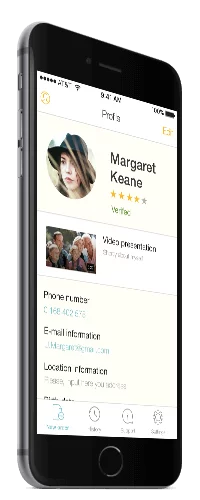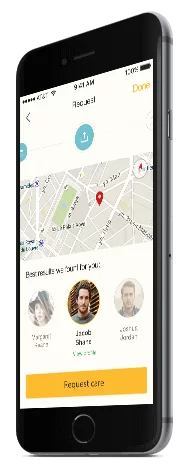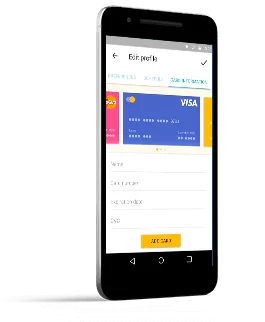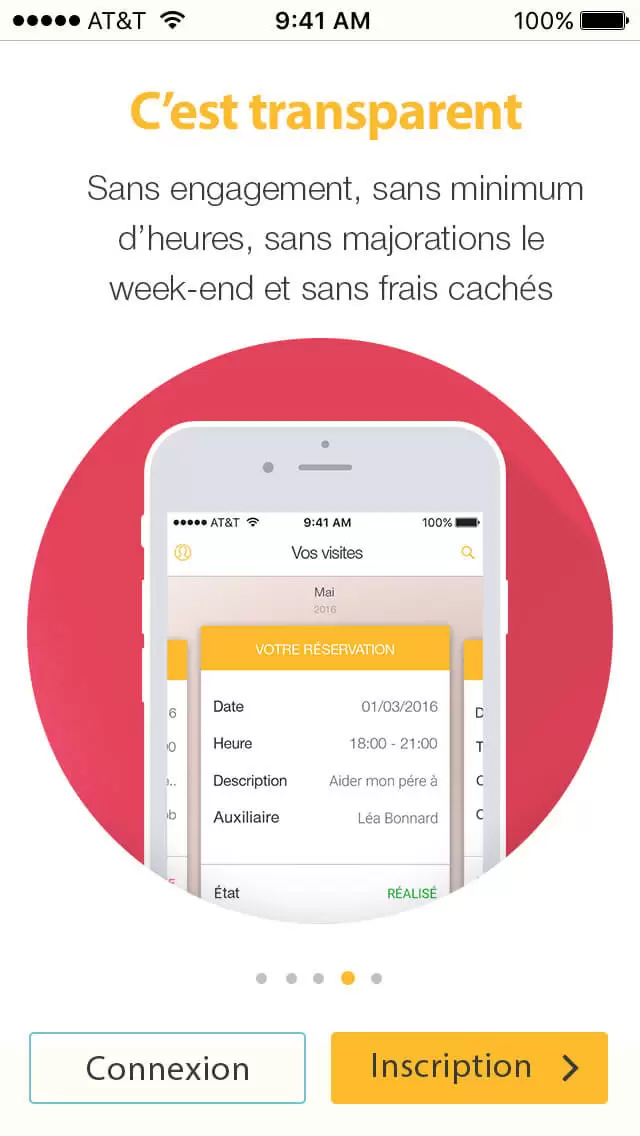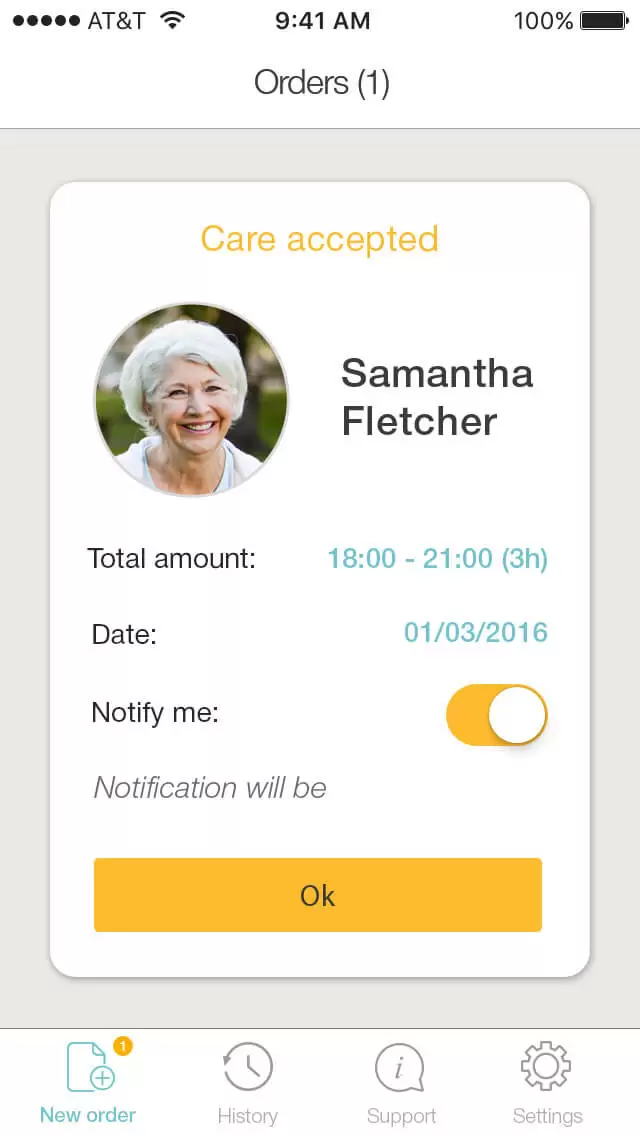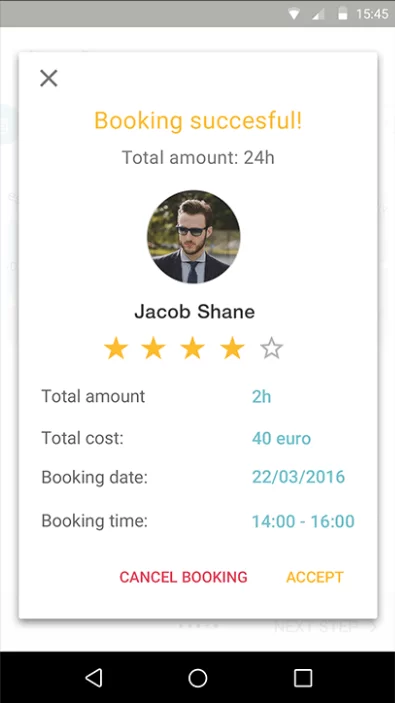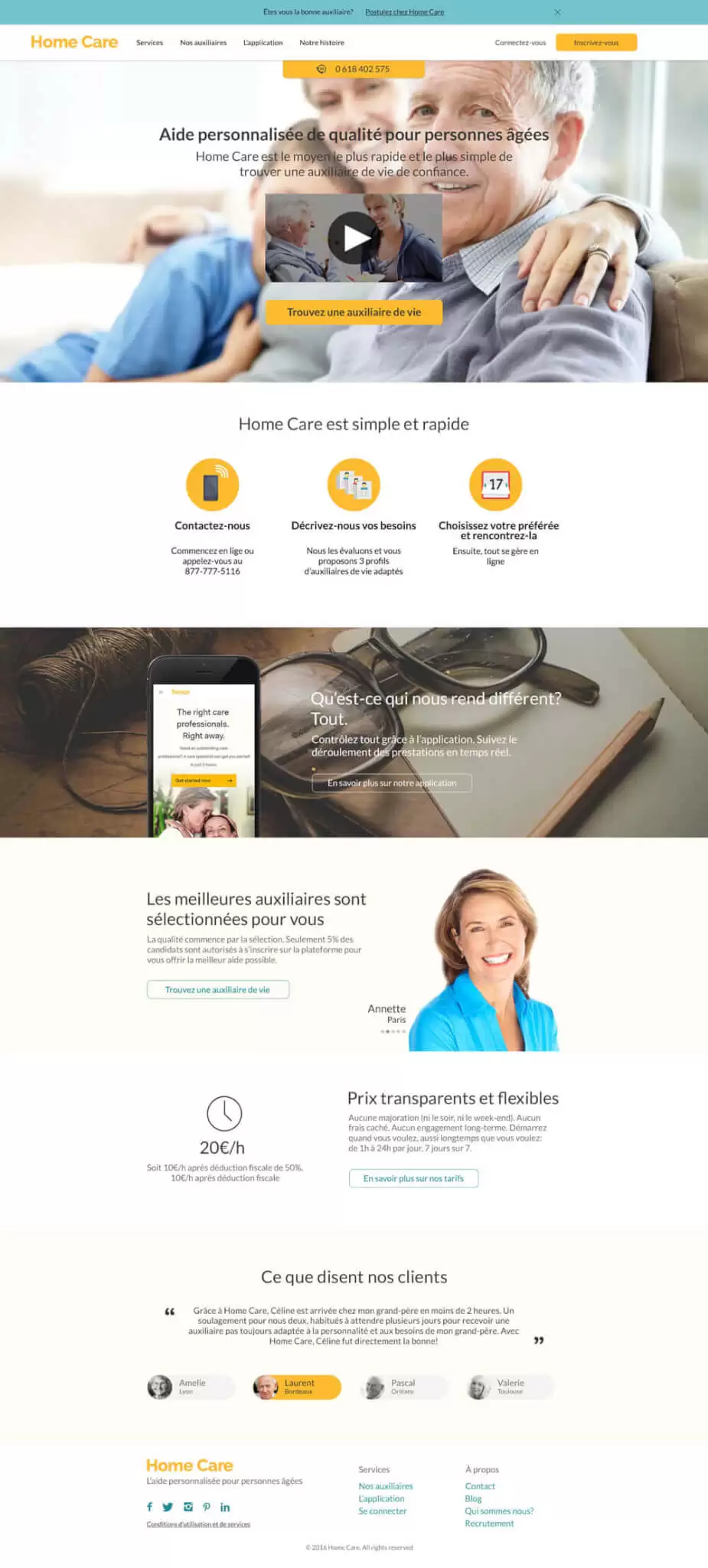Challenge
The idea of the app implied the following actions:
- Set up care with the tap of a button.
- Schedule the time and location for each visit.
- List specific tasks to help with that day.
- See who’s coming and exactly when they arrive and leave.
- Settle payments within the platform.
- Get feedback after each visit and rate the Care Pro.
- Get 24/7 support.
Since the app’s architecture involved user profiles, task management, rating and payment systems and it was generally complicated to process all the data on mobile device side, Elinext mobile development team was reinforced with web developers to build the server-side of the application.
Solution
Before diving into coding, Elinext business analyst conducted complex marketing investigation, came up with the architecture, and decided to implement the solution in a form of a marketplace with access to the database of caregivers. After the app workflow was thoroughly considered and documented, the baton was passed to designer, who developed UI for native iOS and Android and web applications. To make the app look clean and be intuitive, Elinext designer followed native iOS and Google Material design guidelines closely. As a result, the app was featured with the following sections:
1. Caregiver profile section:
The section represents personal profile looking like a card and specifying address, age, gender, language, certification, willingness to travel followed by video self-presentation. Before being hired, each candidate was required to pass the interview for evaluating his professional suitability.
Once approved, the caregiver needs to determine his availability hours, location, and willingness to travel.
2. Senior or “A loved one” profile section:
Any senior user after setting up his profile (or his family member can do that for him instead) is also required to fill in some personal information.
3. Request and order section:
Within this section a senior can make a request where he selects the type of care he would like to get: medication reminders, grocery shopping, cooking, bathing and personal care, housekeeping, or just good conversation over coffee. After the request is submitted, the app matches him with relevant and highly-rated caregivers.
Being this matching algorithm one of the most complicated modules in the whole project, Elinext team is very proud to make it work accurately and quickly. This works in the following way:
- Making a request, a senior narrows down the choice to exact requirements and qualifications.
- Based on rating, personal details and availability, he is provided with several options and needs to make his choice within 3 hours once match notification is received.
- The senior is also shown the current locations of caregivers on the map.
4. Map or Geolocation section:
The map itself, namely geolocation of both senior and caregiver, is an integral part of the app as it controls the amount of time the caregiver spends on providing his services. As soon as he arrives to the senior’s location, the app starts tracking the time for providing a service, and once the caregiver leaves, time-tracking stops. Based on that, the caregiver’s daily salary is calculated and transferred to his credit card.
For geolocation tracking purposes Elinext developers integrated the app with Google maps service.
5. Payment section
The other challenge for Elinext was in selecting a proper payment service to integrate the app with. Taking into account the customer’s monetization model, advanced money transfer reporting that he requested, funds splitting and freezing capabilities along with meeting European KYC requirements, Elinext made their choice in favor of MangoPay service.
6. Administrator section:
For keeping an eye on the whole process for Home Care Service App administrator, managing and configuring clients’ requests, gaining statistics on app usage and payment workflow, as well as for content moderating purposes, Elinext built a very flexible user-friendly admin area.
Results
The customer received a custom caregiving app based on a peer-to-peer business model allowing them to receive in-home care and significantly reduce their expenses for hiring caregiving individuals instead of addressing an agency. The solution was successfully introduced to investors and gained over €500k of funding for its further implementation and support.









